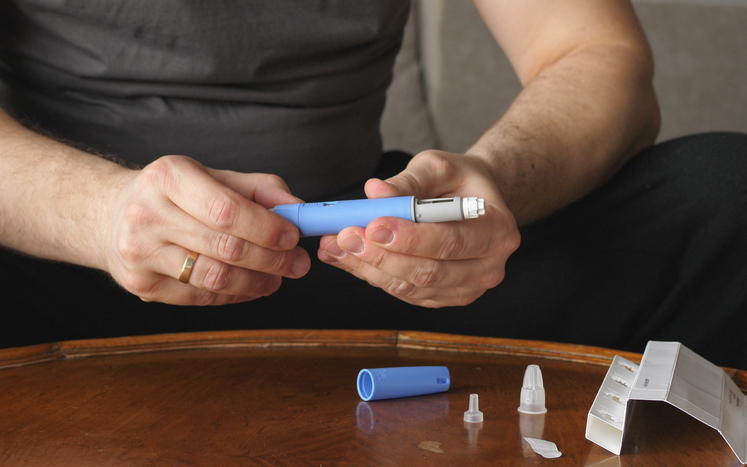Once-Weekly Insulins Could Soon Be the Key to the Future of Insulin Treatment
By Susannah Chen
 Researchers at this week’s 2023 Advanced Technologies and Treatments for Diabetes (ATTD) conference in Berlin provided an update on icodec and efsitora, two new basal insulins being studied for the treatment of diabetes that only need to be administered once weekly.
Researchers at this week’s 2023 Advanced Technologies and Treatments for Diabetes (ATTD) conference in Berlin provided an update on icodec and efsitora, two new basal insulins being studied for the treatment of diabetes that only need to be administered once weekly.
At the 2023 Advanced Technologies and Treatments for Diabetes (ATTD) conference in Berlin this week, researchers provided an update on icodec and efsitora, two new once-weekly basal insulins being studied in research, but not yet available for individuals with diabetes.
“We’ve come a long way in terms of basal insulins,” said Julio Rosenstock, MD, clinical professor of medicine at UT-Southwestern Medical Center. He explained that once-weekly basal insulins may help overcome some of the challenges that historically come with taking daily insulin, such as consistently sticking to treatment, adding: “There’s no question that people will prefer to have 52 injections as opposed to 365 injections per year.”
Rosenstock presented the latest results of Novo Nordisk’s six-part ONWARDS Phase III trials to demonstrate that weekly insulin icodec is just as effective at reducing A1C in patients with type 2 diabetes as once-daily basal insulins. Following the completion of the ONWARD studies, Novo Nordisk is expected to file for regulatory approval in the United States, EU and China in the first half of this year.
Juan Pablo Frías, MD, medical director and principal investigator of Velocity Clinical Research, presented an update on another once-weekly insulin being studied in QWINT, ongoing five-part trials comparing the clinical outcomes of type 2 diabetes patients taking once-daily insulin degludec with the new once-weekly insulin efsitora alfa (also known as basal insulin Fc, or BIF). Similar to icodec, efisitora is administered once weekly; it has a half-life of 17 days compared to 7-8 days for icodec. Participants in one of the ongoing QWINT studies who were taking weekly efsitora compared to daily insulin degludec had less hypoglycemia, particularly nighttime hypoglycemia; similar A1C reductions; similar (greater than 75%) Time in Range, and lower Time Below Range.
Despite acknowledging there are still some challenges with weekly insulins—“I think there’s going to be a lot of education [needed],” he pointed out—Frías also acknowledged the importance of weekly insulin therapy. “This will be the wave of the future,” he declared.








